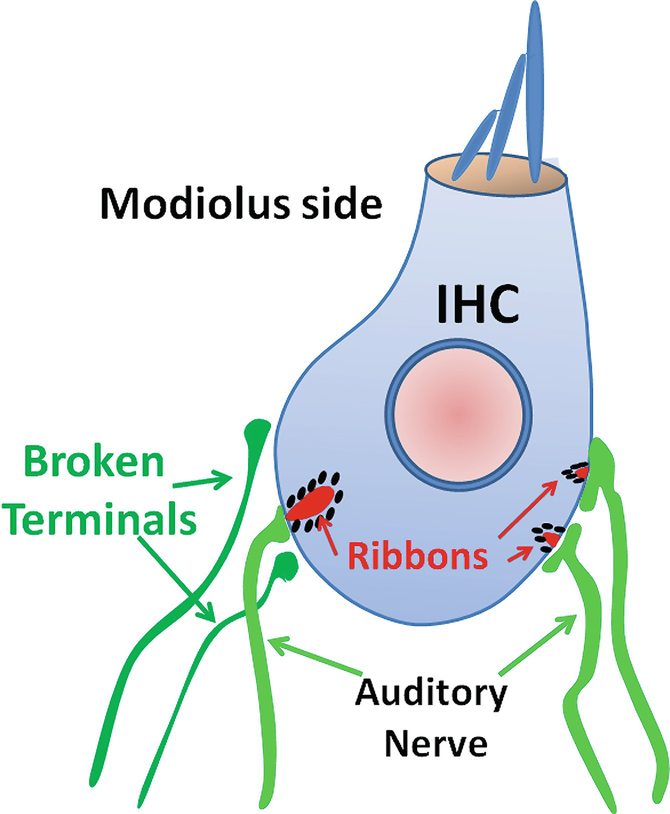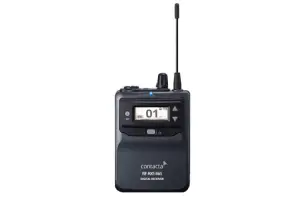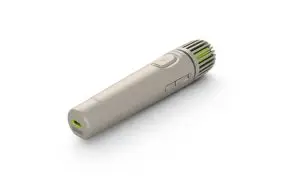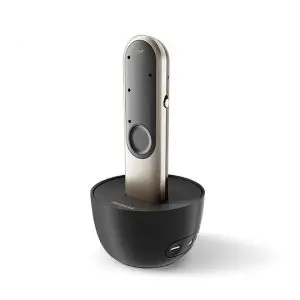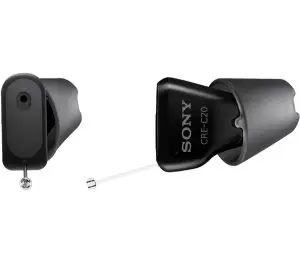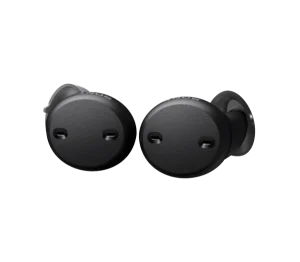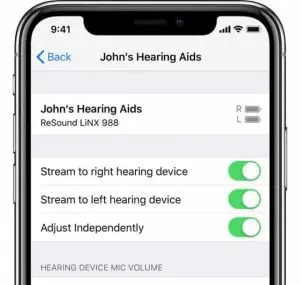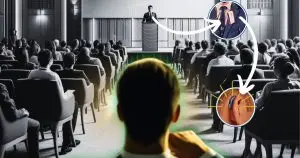First, what is it mean, Hidden Hearing Loss?
One can not see a Hearing Loss and sometimes the Person isn’t even Diagnosed with a Hearing Loss.
Hidden hearing loss (HHL) is defined as one that is not detectable on standard hearing tests, which are meant to show problems within the ear, but not the nervous systems. It is unclear how many suffer, but some clinics have reported up to 10 percent of patients with a “normal” audiogram, who still report symptoms. There are also no established guidelines to diagnose, but many patients have a few things in common:
- A strong sense that you have a hearing loss, even after passing a hearing test (audiogram);
- A preference for quiet settings for conversations;
- Feeling easily distracted or unable to focus in noisy settings, and/or
- Hearing people incorrectly.
Sound familiar? Does that describe you or someone you know?
As you may remember, when we hear, movement in the cilia (hair cells) in the inner ear send signals to the auditory nerve (AKA the vestibulocochlear nerve, or the 8th cranial nerve). These signals cross over synapses (junctions between nerve cells). In the ordinary hearing loss, damage occurs to these cilia or to the nerve. Hidden Hearing Loss often arises because of loss of synapses between nerve cells. The signal arrives incomplete, missing information needed to interpret the words. While the cause is not known, (animal studies have yielded some theories and research is ongoing), some believe aging plays a role, as well as long exposure to even low-level noise (though this particular potential cause is up for debate), ototoxic medications, or demyelination (see below).
If you look up Hidden Hearing Loss, you may also see Cochlear Synaptopathy. This can be a cause of Hidden Hearing Loss, but as we have seen it is not the only possible cause. Let us look at this more closely. Nerve cells (neurons) are responsible for passing along messages. In order to do that, the message has to travel from one neuron to another. There is a small gap between these cells, called a synapse. To make this “jump” chemicals, called neurotransmitters, are used. Different neurotransmitters are used to pass along different signals. Synaptopathy is a disease of the nervous system, specifically of these synapses. These neurons have a protective coating called myelin. This sheath protects the neurons and helps the signals move along quickly and efficiently. Damage to the myelin sheath can cause the signals to slow or stop.
Bottom line:
Hidden Hearing Loss can be caused by cochlear synaptopathy, but not always. In addition, a diagnosis of cochlear synaptopathy would have to be one of exclusion. In humans it can only be observed post-mortem using certain histological techniques; that is, by looking at the cells under a microscope.
So, if an audiogram can not be used to diagnose Hidden Hearing Loss, what tests are there?
That is currently an area of research. Use of “speech in noise” or “words in noise” tests are helpful. Measurement of the middle ear muscle reflex to capture how well subtle and rapid fluctuation in sound waves is encoded. Another asks study participants to wear special glasses that measure changes in the diameter of the pupil while listening to speech in noise. It is believed that pupil size reflects how much effort it takes to understand that speech in noise during that task.
Once the causes are more understood, therapies will soon follow. For now, there are some medications that help regenerate synapses. Hearing aids with a “speech in noise” setting can be helpful. These use directional microphones to help pick up the signal in front of you and reduce the background sounds. Certain Assistive Listening Devices could also be helpful (like a personal FM system). Our Hearable store is equipped to help you or to share a networked hearing care provider who is knowledgeable about Hidden Hearing Loss and who can guide you to the device best suited to you and your needs. Try not to ignore the problem. Like so many things, it does not improve with age.
At Hears Hearing & Hearables in Hopkins, MN, we want you to be aware of the latest in research. If you have questions about these articles or would like to read them for yourself, please contact us. Several articles were used to write this summary:
- Understanding Hidden Hearing Loss, Contributed by Temma Ehrenfeld Healthy Hearing Last updated November 22, 2021
- C Kohrman, D., Wan, G., Cassinotti, L., & Corfas, G. (2020). Hidden Hearing Loss: A Disorder with Multiple Etiologies and Mechanisms. Cold Spring Harbor perspectives in medicine, 10(1), a035493. https://doi.org/10.1101/cshperspect.a035493
- Hidden Hearing Loss? No Effect of Common Recreational Noise Exposure on Cochlear Nerve Response Amplitude in Humans., Sarah K. Grinn, Kathryn B. Wiseman, Jason A. Baker, and Colleen G. Le Prell
- Frontiers in Neuroscience Published 1 September 2017
- Harvard Medical School News and Research
- Hidden Hearing Loss Revealed, By Mass. Eye and Ear Communications Published Jan 30, 2020
- Harvard Medical School News and Research, Hidden Hearing Loss Effects, By Ryan Jaslow, September 6, 2019

